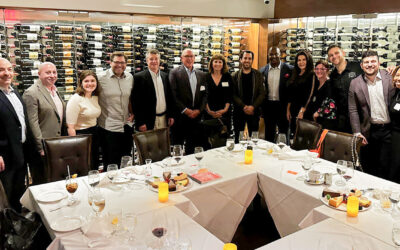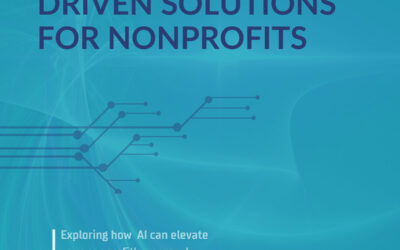Building Bridges - The TANGO Blog
TANGO’s mission is to build bridges between the nonprofit sector and the business sector. The mission is based on the belief that the interests of the sectors are capable of being aligned, and that communities do better when their interests are aligned.
More about the TANGO Blog
|
An alignment of interests is not the same as a merger of interests. Each sector is responsible for different tasks within a community, both sets of tasks are necessary conditions for community stability, and each sector should be allowed to perform the tasks for which it is best suited without undue interference from the other. However, recognizing the equally important role each sector plays in the community, the sectors should support each other, and doing this will require a bridge over which information, ideas, problems, solutions, and goals are exchanged freely in both directions. |
The principles upon which the bridge will be built are the TANGO Founding Principles appearing at the beginning of our textbook, The TANGO Nonprofit Method. This Blog is one component part of the bridge we will be building, and it will be both a platform and a portal to identify relevant information, ideas, problems and solutions and to discuss them openly and critically. Finally, our roots are in the business sector, and we will bring “business-like” rigor to our commentary. We will be frank and clear so as not to be misunderstood, while always being respectful. We also invite counter-opinion from those who disagree. Having said this, our critique of nonprofit sector organizations will be based on the following rigorous standards and principles: |
ONE: Tax-exempt status is a privilege conferred by federal and state legislative acts. Tax exemptions and tax deductions reduce public tax revenue, and, as such, indirectly subsidize nonprofit sector operations.
TWO: The governing boards and management teams of these organizations must adhere strictly to high fiduciary standards when expending and managing the funds and assets of the organizations they serve. Moreover, as fiduciaries of financial and other assets dedicated to a public/charitable purpose, nonprofit governing boards have a higher level of responsibility than do our elected officials who are not held to fiduciary standards when they exercise their voting authority over public assets.
THREE: Nonprofit governing boards have a duty to develop a set of measures and metrics to gauge both internal operating functions and the social impact of their organizations. The applicable measures and metrics should be prepared in conformance with the fiduciary standards mentioned above consistent with applicable benchmarks, data, and known industry standards.
FOUR: Organizations should report prominently and candidly the results of operations relative to the measures and metrics. The fiduciaries governing boards of these organizations must have the courage to report poor measures and metrics, not unlike the manner in which publicly traded business organizations are required to do so – even if over the objections of management.
FIVE: Nonprofit Organizations should not misuse the emotional appeal of their mission. The emotional appeal of a mission statement should be subordinate to the measurement and metric outcomes.
June 2024 – Founders Forum by Rollin Schuster
Of all the things we do everyday to support the nonprofit sector, nothing gives me more pleasure than to recognize our Rising Star Scholarship recipients.
Enhancing Cybersecurity for Non-Profits with Zero Trust: A Modern Approach
According to the 2023 Cybersecurity Threat Trends report, non-profits are increasingly targeted by cybercriminals due to their often-lax security measures and valuable data. Adopting a Zero Trust model can significantly enhance a non-profit’s cybersecurity maturity.
May 2024 – Founders Forum by Rollin Schuster
As we approach the half-way point of 2024, I would like to reflect on some of our accomplishments. These are all focused on achieving our established mission to “help nonprofits thrive” … from a business perspective.
Evaluating the U.S. Department of Labor’s Overtime Final Rule
Evaluating the U.S. Department of Labor's Overtime Final RuleAt First Nonprofit and as a Partner of TANGO, this is an issue we know many nonprofits are looking at and preparing for. The article shown below is from the National Council of Nonprofits and it does a nice...
April 2024 – Founders Forum by Rollin Schuster
This month we had the good fortune to formally launch TANGO into New York City.
TANGO Blog
Our latest initiative, the “Out of the Box” campaign, launched during Autism Acceptance Month, challenges the stereotypes that often overshadow the unique abilities of individuals on the Autism Spectrum.
Navigating Conflicts of Interest By Julia Boisvert
What does a board of directors do when a director has a potential conflict of interest? Can a tax-exempt organization contract with a company owned by one of its officers or directors?
March 2024 – Founders Forum by Rollin Schuster
This month we had the good fortune to formally launch TANGO into New York City.
How Grassroots Lobbying Can Broaden a Nonprofit’s Reach
Grassroots lobbying presents a powerful tool in a nonprofit organization’s arsenal of asserting its
significance and its message.
Empowering Nonprofits in the Digital Era: AI-Driven Solutions for Social Good
In today’s digital age, nonprofits are finding a powerful ally in Artificial Intelligence (AI). With resources often limited, AI offers smart solutions to tackle unique challenges faced by nonprofits.
Want More Content Like This?
For all the latest news, events and nonprofit related content, become a member and receive our montly Trends Newsletter. membership is free for all nonprofit organizations.









